BUSINESS CULTURE

Sweden is an interesting country in which to do business. With a population of only 9 million, most Swedish companies have expanded internationally because of such a small domestic market. Their success on a global stage rivals countries with populations ten to a hundred times higher than Sweden. Using both pro-business policies and an egalitarian attitude, Sweden has made itself into a universal hub for commercial growth, opportunity, and fairness.
History
Back in the seventh and eighth centuries, the Swedes were merchants via sea. The Nordic Vikings reached all across Europe - trading, pillaging, and raiding until the end of the Middle Ages. As the Renaissance ushered in a religious trend in Europe, Sweden became a unified Christian kingdom that included the present day land masses of Finland, Denmark, and Norway. By the 1600s, Sweden had declared its independence, yet the fighting did not cease. Many wars were fought throughout the next couple of centuries, reducing the land territory for the Swedes. Soon after, the Industrial Revolution brought change, shifting from village to private farm-based agriculture. Still, almost a million Swedes immigrated to the United States from 1850-1890 because of food shortages during this transformation. The 19th century brought political and social reform, introducing the three major party groups - the Social Democratic Party, the Conservative Party, and the Liberal People’s Party. Sweden remained neutral during both World Wars and met international demand for steel, ball bearings, wood pulp, and matches during the conflicts. By 1995, Sweden joined the European Union, however, they did not adopt the Euro and still use the Swedish krona to this day.
Structure and Management Style
Swedish business structure ties in directly with its egalitarianism attitude. Thus, Swedish companies tend to be more flat and less layered than other European countries. Their power distance is low, which means power is decentralized and control is relaxed. Managers are expected to supervise and support, rather than direct and govern. Swedes place a highly emphasis on Individualism, and people are expected to perform their jobs on their own with little oversight. Sweden is looked upon as a feminine culture, making sure that everyone is included rather than individuals wanting to be the best.
The word “lagom” is used frequently - which means something that is “not too much, not too little, not too noticeable, everything in moderation.” This word is representative of Sweden’s social welfare system, which provides neutrality to all aspects of life. Compromises and negotiations are critical to Swedish culture. This can make decisions hard to reach and drawn out over time, as everyone’s opinion is considered to be valuable.
Company structures are designed to be rational and systematic, allowing employees to do their tasks both effectively and efficiently with as little interference as possible. Matrix management is very positive in Sweden, with open communication and freedom of information paving the way for continued success. The Swedes are all about punctuality, so being late to a meeting or business outing will tarnish one’s professional image. Silence is also considered to be golden, therefore one should not speak unless they have something to say.
Tips For Doing Business in Sweden
-
Egalitarian and collective consensus are key
-
People are expected to perform their tasks without interference from outside involvement
-
Open communication and flat business structures are the norm
-
Team players and the inclusion of employees in decision making process
-
Do not be afraid of silence and do not be afraid of directness
Social, Legal, and Human Rights
Swedish law is based on a middle ground of civil code and precedent. Two courts exist - the general courts for criminal and civil cases, and the general administrative courts for disputes between private individuals and authorities. Each court has three tiers, but the Supreme Court typically only hears cases that may become precedent for the lower courts. Juries are not used (unless in the rare cases of press freedom) and lay judges sit beside professional judges to participate in deciding both the facts of the case and the sentencing. (source)
Sweden has always been a global leader in social and human rights. It was the first country, all the way back in 1766, to introduce freedom of press. It was also the first country to prohibit corporal punishment of children back in 1979. The Swedish government has prioritized eight areas for its foreign policy on human rights: democracy building, strengthening freedom of expression, abolishing the death penalty, combat torture, combat summary executions and arbitrary detentions, protecting the rule of law, protecting human rights and international humanitarian law, and fighting discrimination. They are a country that really sets the example in promoting human rights. (source)
The social-welfare system of Sweden is extremely strong. No other country has such a system that ensures the living conditions and financial security for all of its citizens quite like Sweden. Because of this, Sweden exhibits some of the lowest rates of poverty and social exclusion in the world today. Health, education, and other programs are wide-ranging and far-reaching. Education and healthcare are free from preschool through college. Sweden’s position on equality prevents the development of an underclass and narrows the gap between the tremendously wealthy and the average worker. Maternal and paternal leave for childbirth is a right, allowing for 12 months paid time between a child’s birth and their eighth birthday. Sweden’s progressive income tax pays for these services, and their individual income tax is amongst the highest in the world. (source)
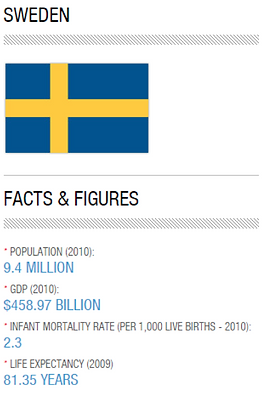
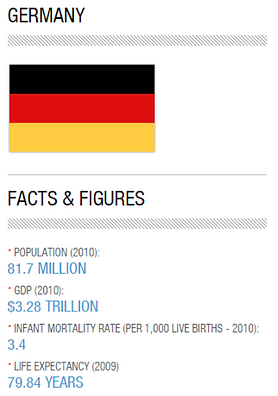

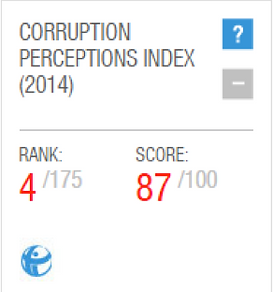

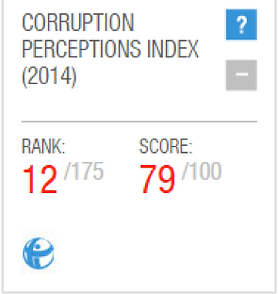
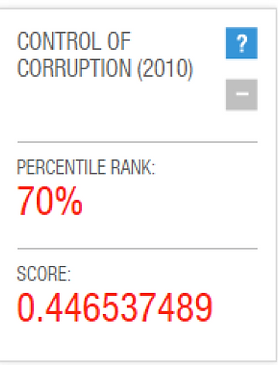
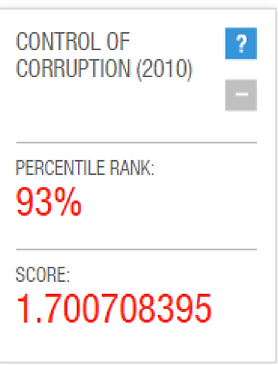
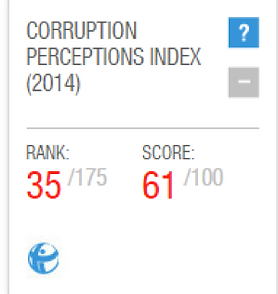


Sweden vs. Germany
About 800 miles to the south lies the European economic powerhouse Germany. Both countries have some of the highest living conditions in the world today, and both conduct business across the globe. Yet the way they conduct this business differs dramatically. The Germans vest their time and concentration into systematic approaches and use deduction rather than induction to come to conclusions. Thus, you can see a vast difference in uncertainty
Sweden vs. Poland
Swedish and Polish cultures differ vastly - in fact, the only thing the two countries share is a strong emphasis on individualism. The power structure in Poland is more hierarchical than in Sweden. The boss is the ultimate authority and people’s opinions do not carry much value unless they hold position. One thing to note is that they are also comparatively individualistic to Sweden, although their emphasis on hierarchy means that everyone is important but not considered
avoidance when compared to Sweden (65 to 29). The Germans also have a significantly higher emphasis on masculinity (66 to 5). People “live to work” and are extremely performance based, contrast to the Swedish way of doing what you like to do. Swedish work and leisure time are not entwined, while work is the heartbeat for many Germans (indulgence of 40 compared to 78). Both countries are also leaders in transparency and preventing corruption, ranking amongst the top ten across all categories.
equal. Masculinity is more present within their society and conflict is intended to be fought out rather than compromised and discussed. Poland places much focus on uncertainty avoidance (93 to 29). Inflexible codes of belief and behavior, being “normal,” and not going outside of the box are stout characteristics of Polish culture. The indulgence rating of 29 compared to Sweden’s 78 indicates restraint in Polish culture, where one prioritizes work before play. Poland is ranked worse on corruption and transparency, notable in an environment such as the EU that promotes fairness and equality.